Identification
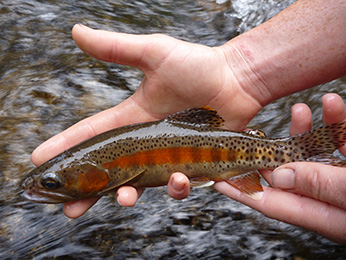 Willow Creek.
Willow Creek.
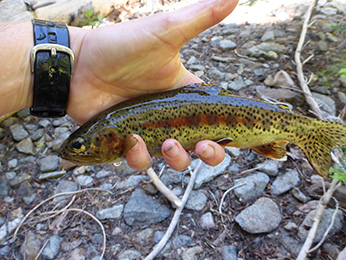 Mountaineer Creek.
Mountaineer Creek.
- Similar in appearance and color to California golden trout.
- Both are brightly colored with vibrant bellies and pronounced lateral lines, although Little Kern golden trout tend to be darker and more subdued in color.
- Spotting is more profuse and typically extends across the upper body, head, tail, and below the lateral line.
- The back is olive-green and may transition into a mixture of yellow, gold, orange, or white on the sides.
- The lateral line is red-orange and often has up to ten parr marks, which are generally retained into adulthood.
- Red-orange color can sometimes be a deeper shade of red and is also present on the opercula.
- Paired fins are orange and tipped with white.
Distribution
- Endemic to the Little Kern River and tributaries in the southern Sierra Nevada Mountains (Tulare County).
- Native drainage is almost entirely within the Golden Trout Wilderness Area.
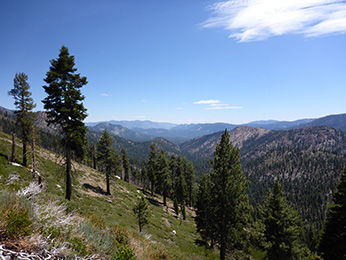 Little Kern River watershed.
Little Kern River watershed.
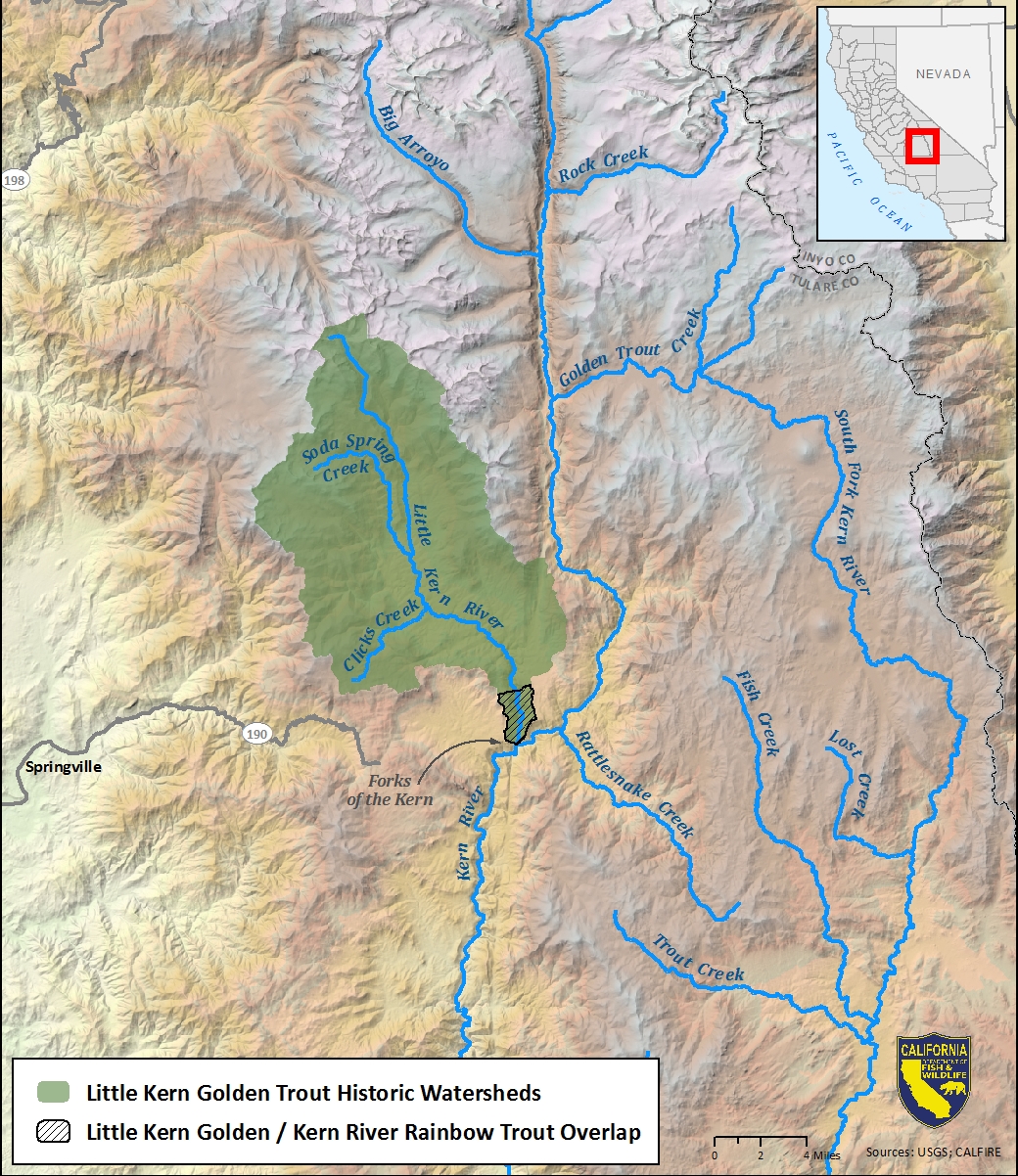
Angling
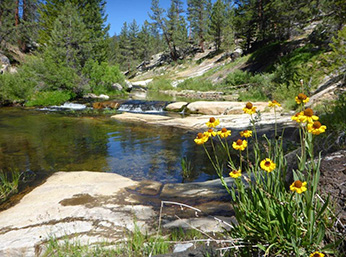 Little Kern River.
Little Kern River.
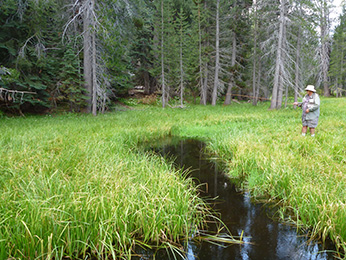 Angler fishes in Clicks Creek.
Angler fishes in Clicks Creek.
- When fishing smaller tributaries use a stealthy approach, especially in meadow habitats where trout can easily be spooked.
- Consider reducing your profile by crouching or use vegetation as cover when approaching streams.
- Many Little Kern River tributaries are lined with dense willows, making effective presentation difficult for those who are used to long, unobstructed casts.
- Try different casting techniques such as using the rod to dap the fly on the water or release slack leader/line downstream under overhanging brush to present the fly first.
- Casting more vertically in a “steeple” fashion helps to avoid hanging up in vegetation as does the “bow and arrow” cast.
- Dry flies work very well, particularly in small meadow streams, but all types of flies and small lures are effective when angling for Little Kern golden trout.
Most of the watershed provides a backcountry angling experience, but there are a couple of roadside streams with relatively short hiking distances.
Well-established trails exist throughout Golden Trout Wilderness and give access to the majority of the basin. High elevations, steep terrain, and long hiking distances make travel difficult.
Local outfitters provide pack-in services using mules or horses.